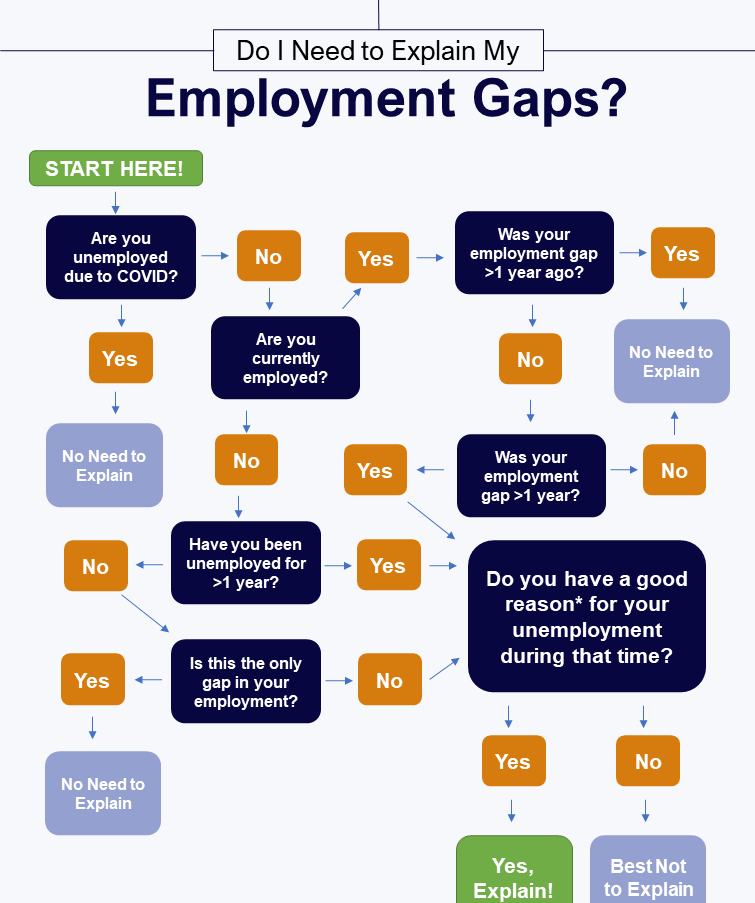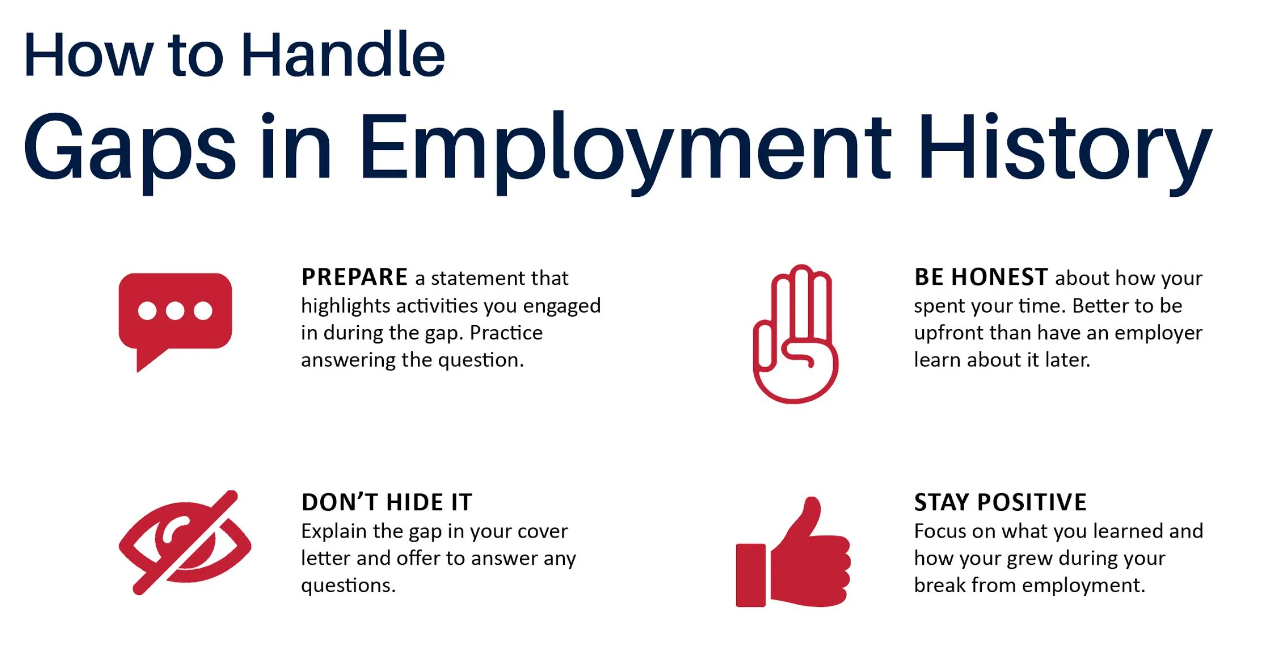Engineering has always been a field of innovation and evolution, offering exciting opportunities for those who choose it as a career path. As a fresh graduate or a college student,…

Short Stint: How to Explain Brief Employment on Your Resume
Let’s face it, career paths aren’t always linear. You might have taken a temporary position, transitioned out of a role that wasn’t a good fit, or embarked on a freelance project. Regardless of the reason, a short employment stint on your resume can raise eyebrows for potential employers. But fear not, with the right approach, you can transform that brief experience into a positive asset.
This guide delves into effective strategies for addressing short-term employment on your resume and interview. We’ll explore resume formatting techniques, craft compelling explanations for your departure, and highlight the transferable skills you gained, all to land that dream job.
Table of Content
Why Does a Short Employment Stint Matter?
Recruiters prioritize stability, and frequent job changes can raise questions about commitment. However, a single short stint is less concerning, especially if you have a solid explanation and a demonstrably focused career path.

The key is to manage the perception created by the short timeframe. By effectively presenting the experience and its value, you can convince employers you’re a valuable asset, not a flight risk.
Why Do Short Stints Happen?
There are many legitimate reasons for a short employment period. Here are a few:
- Project-based contracts: Many industries rely on short-term contracts to complete specific projects. These experiences can showcase valuable skills and adaptability.
- Seasonal positions: Retail, tourism, and hospitality often require seasonal staff. Highlighting achievements in a fast-paced environment is a plus.
- Freelance work: Freelancing demonstrates initiative, resourcefulness, and the ability to manage multiple clients.
- Temporary roles: Sometimes, temporary roles lead to permanent opportunities. Focus on the skills gained and positive contributions made.
- Company restructuring: Downsizing or mergers can lead to layoffs. Be upfront about the reason for departure.
Optimizing Your Resume for Short Stints
Here’s how to ensure your resume reflects short-term employment effectively:
- Focus on Achievements, Not Duration: Shift the spotlight from the timeframe to your accomplishments within that role. Quantify your impact using metrics and specific examples. Showcase projects you completed, problems you solved, or goals you exceeded.
- Keywords for Applicant Tracking Systems (ATS): Research the job description and incorporate relevant keywords throughout your resume. This helps your resume pass through the initial screening by Applicant Tracking Systems (ATS) used by many companies.
- Tailor Your Resume: Don’t submit a one-size-fits-all resume, tailor your resume to specific requirements. Adapt your work experience section to highlight the skills and achievements most relevant to the specific job you’re applying for.
- Consider a Functional Resume: If you have multiple short stints, a functional resume format might be beneficial. This format prioritizes your skills and experience over chronological work history, making it easier to showcase your strengths.
Crafting Your Interview Narrative
Now, let’s prepare for the interview:
- Be Honest and Upfront: Don’t try to hide the short stint. Briefly acknowledge it and be prepared to elaborate if asked.
- Frame Your Reasoning Positively: Instead of dwelling on negatives (e.g., “the job wasn’t a good fit”), focus on the positive takeaways. Did you gain valuable skills? Learn about a new industry?
- Highlight Learnings and Growth: Demonstrate that the experience, however short, contributed to your professional development.
- Connect the Dots: Explain how this short stint aligns with your long-term career goals and how it prepares you for the position you’re applying for.
Addressing Specific Concerns
Let’s tackle some common worries you might have about short stints:
- Was it a Layoff?: If the short stint resulted from a layoff or company restructuring, be upfront about it. This reflects no fault on your end.

- Did You Leave on Bad Terms?: Avoid negativity about past employers. Focus on the positive aspects of your experience and your reasons for moving on.
- What if There Were Multiple Short Stints?: If your resume reflects a pattern of short-term positions, consider including a brief professional summary statement at the top of your resume highlighting your transferable skills and career goals.
Short stints are not career killers. By strategically presenting the experience on your resume and crafting a compelling narrative for the interview, you can demonstrate your value and secure that dream job.
Conclusion
Explaining short employment stints on your resume can be a daunting task, but with the right approach, you can turn these experiences into valuable selling points. By crafting a compelling narrative, highlighting transferable skills, and demonstrating honesty and integrity, you can address any concerns that hiring managers may have and position yourself as a strong candidate.
Remember to leverage networking opportunities and prepare thoroughly for interviews to reinforce your qualifications and showcase your potential. With perseverance and strategic planning, you can overcome the challenges of short-term employment and land your next dream job.
FAQs on Short Job Stints
How long is a short job tenure on a resume?
There’s no one-size-fits-all answer. Generally, anything under 3 months is considered a short stint. However, context matters. A 3-month contract role can be valuable, while a 6-month job that ended poorly might raise concerns.
Should I explain short stints on my resume?
Not necessarily on the resume itself. Focus on achievements. However, be prepared to address them in an interview with a clear and honest explanation.
How can I explain a gap in employment on my resume due to a short job tenure?
Be truthful! Briefly explain the reason (e.g., contract ended, company restructuring). Focus on the positive takeaways (skills gained, career clarity).
Is it okay to leave a job after a short time if it’s not a good fit?
Absolutely! It’s better to leave a bad situation than stay unhappy. Frame it as seeking a role that better aligns with your skills and goals.
How can I make short job tenures look good on a resume?
Quantify your achievements! Use metrics to showcase the impact you made in that short time.
Can short stints help my career?
Yes! Short-term roles can expose you to new skills, industries, and work styles. Highlight the transferable skills you gained.
What if I have multiple short job tenures on my resume?
Consider a functional resume format that prioritizes skills over chronology. Or, group similar short stints under a single heading.
How can I overcome hesitation about short job tenure during an interview?
Practice your explanation beforehand! Focus on the learnings and growth gained. Show confidence and enthusiasm for the new opportunity.
Latest Posts
Top Skills in Resume For Freshers – 2026 Detailed Guide
Creating a compelling resume as a fresh graduate can be a daunting task, but it’s also your ticket to landing your dream job. One of the key elements that can…
Step-by-Step Guide: How to Become a Mechanical Engineer
Mechanical engineering stands as one of the most versatile and in-demand engineering disciplines globally, offering exciting career opportunities across diverse industries. For college students and recent graduates in India, understanding…
What is Upskilling? – Meaning, Benefits and Tips to Upskill
Being ahead of the curve is more crucial than ever in the ever-changing world of today. This requires ongoing skill development and technological adaptation. This entails upskilling or reskilling for…
Top 10 Do’s and Don’ts For Your First Job
Looking for a new job can be a daunting task, especially if you’re a fresher. There are so many factors to consider, from the type of job you want to…
Popular Posts
100+ Quantitative Aptitude Questions for Placement with Answers
Quantitative aptitude questions play a crucial role in campus placements, competitive exams, and entry-level job interviews. Whether you are preparing for your first job interview, an aptitude test for placement,…
How to Start an AI Career in India: Skills and Future of Work
Artificial Intelligence (AI) is revolutionizing industries worldwide. From automating routine tasks to enabling self-driving cars and intelligent healthcare diagnostics, AI is reshaping the future of work. For college students and…
How to Write Mail for Job Application – Explained
A job application email is a professional email that you send to a potential employer to express your interest in a job opening. It is typically accompanied by your resume…
Google Internship 2026 for Freshers: All You Need to Know
In the competitive landscape of technology careers, a Google internship stands out as a golden opportunity for aspiring professionals. Whether a college student or a recent graduate, securing an internship…
How to Write a Job Application Letter (With Samples)
When it comes to applying for your first job, making a great first impression is crucial. As a recent graduate, you might feel a little intimidated by the idea of…
